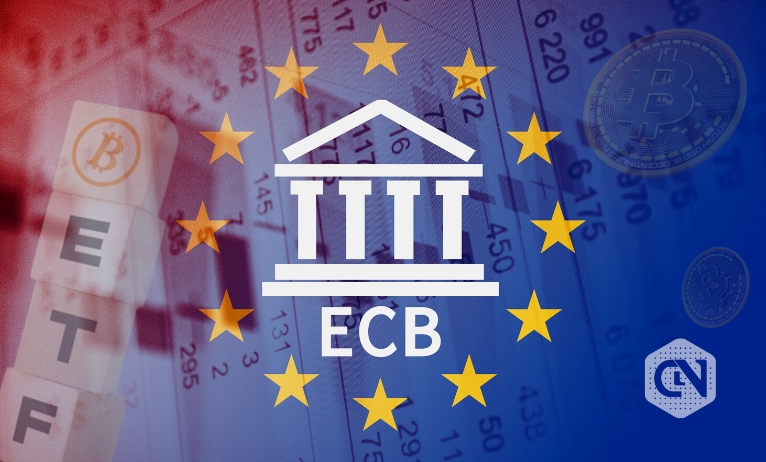Long story short, the European Central Bank remains wary, if not a supporter, of Bitcoin, despite the US SEC’s recent approval of the Spot Bitcoin ETF applications. This is based on a blog post by Ulrich Bindseil and Jürgen Schaaf, who advocate for ETF approval for Bitcoin, the naked emperor’s new clothing. This is most likely an indication that Bitcoin’s underlying infrastructure remains unchanged despite one of the most significant advances in the crypto sector.
The blog asserted that Bitcoin has failed to deliver on its promise of becoming a global decentralized digital currency, adding that the token or network hardly comes into use for legitimate transfers. What drives the value is primarily the sentiment of missing out among traders. It further cited that approval of the ETF has not made Bitcoin a valuable means of payment.
Two concrete aspects that Ulrich Bindseil and Jürgen Schaaf have tackled in their draft pertain to the safety of Bitcoin as an investment and the same rollout triggering the triumph of Bitcoin. There could be collateral damage in the future, entailing damage to the environment and the redistribution of wealth, but at the expense of the less sophisticated.
According to the blog post, bitcoin-related risks, earlier claimed by analysts, have materialized. It stated that despite the major advancements, Bitcoin continues to remain slow and costly, inconveniencing many traders. If anything, it has paved the way for large-scale use by criminals. El Salvador granting Bitcoin legal status failed to change and capitalize on the digital token. Attempts were made to transform it into a successful means of payment for citizens.
Next, Bitcoin is not precisely a safe investment product, for it does not carry any cash flow and/or dividend. Also, there is no social benefit to Bitcoin, which is widely offered by gold or other jewelry items.
Finally, the blog post by Ulrich Bindseil and Jürgen Schaaf addressed Bitcoin’s Proof of Work mechanism. It was cited that the mechanism is polluting the environment since higher energy consumption implicates environmental dangers. Both authors have not shied away from acknowledging that the unit has risen from the ashes.
BTC was trading at ~$17,000 in 2022 and is now exchanging hands at $50,915.78.
That could have happened due to the interest rate policies of the US Federal Reserve, the upcoming Bitcoin Halving event, and Spot Bitcoin ETF approval. It lacks cash flow or other returns to give a fair value to Bitcoin. Ulrich Bindseil and Jürgen Schaaf contested the idea behind investing in the Spot Bitcoin ETF. They stated that users would not want to pay asset managers for the custody service of just a single asset.
That is based on the principle that ETFs enable investors to diversify their risk with multiple holdings of individual securities. Three crucial factors fueling the hype around Spot Bitcoin ETF, or the cryptocurrency itself, are price manipulation, shortcomings in the judgment of authorities, and growing demand for the currency of crime, per the blog post authored by Ulrich Bindseil and Jürgen Schaaf and published by the European Central Bank.
